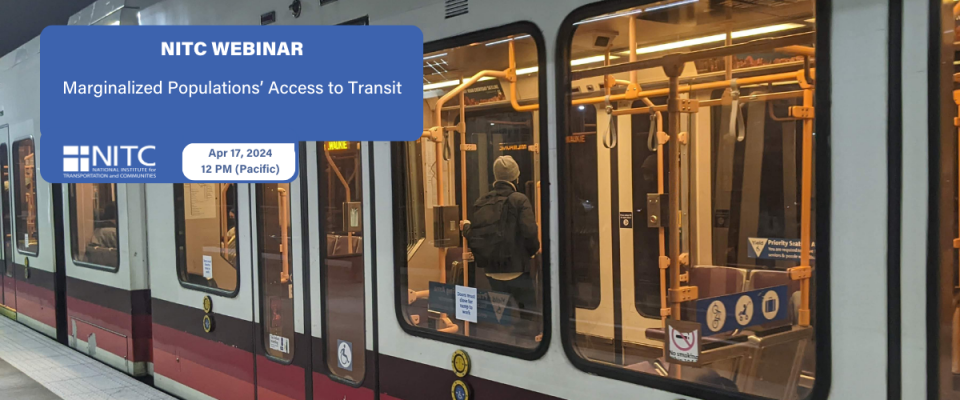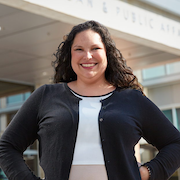
PRESENTATION ARCHIVE
OVERVIEW
How do people with intersecting marginal identities experience social exclusion as they travel via mass transit?
To answer this question, PSU researchers employed a qualitative method less common in transportation studies: photovoice. Researchers asked participants to describe the factors that shape their travel behavior and provide photographic data of their experiences. Then, they conducted in-depth video interviews to gain further depth and clarity regarding the visual data.
The findings from this study can help transit system designers better understand how experiences of harassment and discrimination across the entire users’ journey affects the riders’ decisions about whether and when to take transit, and the extent to which transit-related infrastructure is related to decisions about where to live or their access to long-term housing.
KEY LEARNING OUTCOMES
- Specific strategies for enhancing equity in relation to transportation;
- Clarifying the places and spaces in which our most vulnerable residents experience mobility restrictions;
- Ways that transportation planners can work with MPOs and homeless service nonprofits to advance understanding about—and action for—historically marginalized populations.
THE RESEARCH
This webinar is based on a study funded by the National Institute for Transportation and Communites (NITC) and conducted at Portland State University. Read more about the project: Marginalized Populations’ Access to Transit: Journeys from Home and Work to Transit.
SPEAKER
Marisa Zapata, Director, Portland State University Homelessness Research & Action Collaborative
Dr. Marisa Zapata leads the Homelessness Research & Action Collaborative (HRAC), an interdisciplinary research center dedicated to reducing homelessness and its negative impacts on individuals, families, and communities, with an emphasis on communities of color. She is also an Associate Professor of Urban Studies and Planning. As an educator, scholar, and planner, Dr. Zapata is committed to achieving spatially-based social justice by preparing planners to act in the face of the uncertain and inequitable futures we face. She believes how we use land reflects our social and cultural values. Dr. Zapata has published in peer review journals such as Planning Theory & Practice, International Planning Studies, Policy Studies, and Critical Policy Analysis. She is the co-editor of Engaging the Future: Forecasts, Scenarios, Plans and Projects, published in 2007 and recently translated into Chinese.PROFESSIONAL DEVELOPMENT
This 60-minute webinar is eligible for 1 hour of professional development credit for AICP (see our provider summary). We provide an electronic attendance certificate for other types of certification maintenance.
LEARN MORE
Sign up for our newsletter to get updates on our events.
This webinar is hosted by the Transportation Research and Education Center (TREC) at Portland State University. The research was funded by the Summit Foundation and the National Institute for Transportation and Communities (NITC), a program of TREC and one of seven U.S. Department of Transportation national university transportation centers. The NITC program is a Portland State-led partnership with the University of Oregon, Oregon Institute of Technology, University of Utah and new partners University of Arizona and University of Texas at Arlington. We pursue our theme — improving mobility of people and goods to build strong communities — through research, education and technology transfer.

